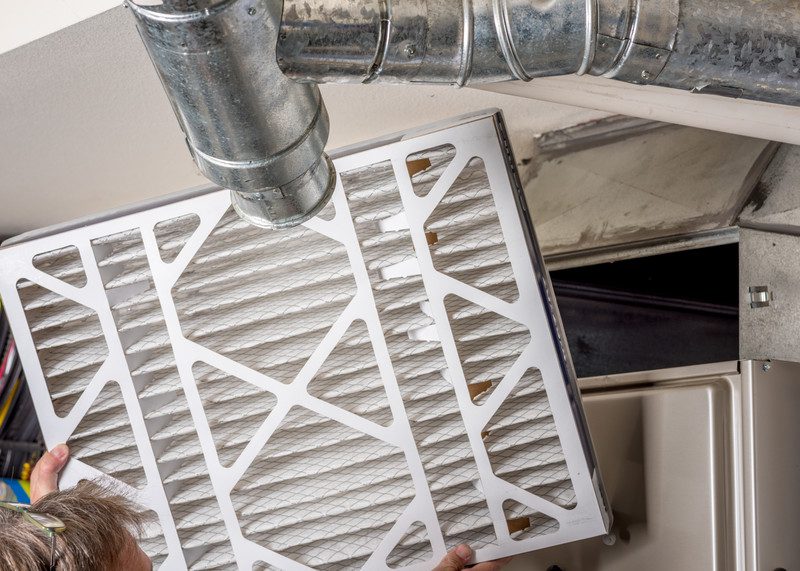What Difference Does Furnace Filter Thickness Make?

Length, width and thickness are all important when it comes to home air filters, because they all affect fit, and fit is critical to furnace performance.
Air filter thicknesses range from one to five inches. A deeper depth means a longer lifespan, greater efficiency and easier installation/removal, but you cannot always simply choose a thicker filter; your furnace may limit your options.
Is Thicker Always Better?
Thick air filters may intuitively seem better, for the reasons listed above. Thicker usually means more air filtration. Thicker air filters tend to last longer because they have more surface area in which to capture and hold air particles. As a result, a one-inch air filter may need to be changed monthly, whereas a four-inch air filter could last up to six months.
Thicker filters do a better job of keeping unfiltered air out, so you breathe healthier air. A four- to five-inch filter usually works best when you want superior filtration.
But there are situations when a thin air filter is preferred.
The Difference Between One-Inch and Four-Inch Filters
The four-inch-thick air filter has an advantage over the one-inch in terms of longevity, airflow and maximum filtering potential. If it fits your furnace, then a four-inch air filter will provide better air quality. The cost difference is often minimal.
But what if the air filter compartment in your furnace is only three inches deep? In that case, the one-inch filter is the better choice—for ease of changing.
It’s Up to Your Furnace
Air filter thickness depends largely on your furnace configuration. Choose the thickest air filter you can for maximum efficiency, but never try to force an air filter to fit into a space it isn’t designed for.
If you try to use a four-inch air filter for a system designed for a one-inch, your efficiency will actually be worse, and components could get damaged in the process of trying to jam the four-inch into the space.
On the other hand, you can certainly use a one-inch filter in compartments made to accommodate deeper filters. But if the filter is too shallow, a loose fit will allow unfiltered air into the ductwork—not ideal for best air quality. Going down in thickness by an inch isn’t usually a big deal, however.
Check the MERV Rating
If you are looking at thicker air filters to improve air quality, look at the filter MERV rating. MERV is an abbreviation for “minimum efficiency reporting value,” and the MERV rating is a measure of how effectively a filter removes particles from the air passing through it. The higher the MERV rating, the more particles the filter will catch.
You get a higher rating when a filter is four or five inches thick, because these filters trap extremely small contaminant particles.
But you don’t always want to choose the highest MERV rating. If your system only fits a one- or two-inch filter, a high MERV rating could be unfavorable.
A one-inch filter with a high MERV rating will get clogged fairly quickly and need to be replaced much sooner than a thicker filter. The combination of a thin air filter with high MERV rate can also restrict airflow to the point that it hinders efficiency and causes excessive wear.
Trust Your HVAC Expert
If you use one of the best heating companies in your area for your furnace maintenance, you can rest assured the technician will put an appropriately-sized filter in your furnace every time.
Locally-owned Jansen Heating and Cooling only installs top-of-the-line air filters in Cincinnati homes. Our service is professional, our costs are reasonable, and we offer 100% satisfaction, guaranteed.
